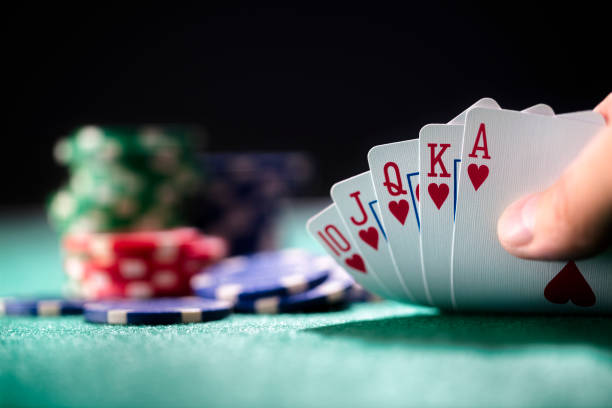
In poker, players play a hand of cards to try to win the pot. Each player has two personal cards in their hand as well as five community cards that everyone else is using to make a hand. The value of a hand is determined in inverse proportion to its mathematical frequency, which means that the more unusual a hand is, the higher it ranks.
While most people think that poker is simply a game of chance, it actually requires a lot of skill to become a winning player. Whether you’re playing poker for fun or to make money, the skills you learn in poker can be applied to other areas of your life.
Poker is a psychological game, and it’s important to stay calm under pressure. You must be able to control your emotions and keep your ego in check. If you can do this, you’ll be a much better poker player. You also need to know when to put your ego aside and focus on making the best decision for your own game.
It’s essential to be a good listener in poker, particularly when you’re not involved in a hand. This will give you a better understanding of your opponents and how they react to the situation. If you can pick up on tells and understand how your opponents think, you’ll be a better player. It’s also a good idea to avoid using deceptive betting lines, unless it’s necessary to protect your chips in a multiway pot.
If you’re holding a strong value hand, don’t be afraid to play it straightforwardly. This will force your opponent to call your bets and you’ll be able to inflate the pot further. You should also be willing to call bets with mediocre or drawing hands, as this will allow you to exercise pot control and get the most value out of your strong hand.
You must be able to read your opponents’ body language and facial expressions. This will help you identify their tells, which you can then use to make more accurate calls and bluffs. You should also look for clues as to their intentions and evaluate their previous betting behavior.
In poker, your opponents are constantly evaluating their situation and trying to predict yours. This makes them vulnerable to certain types of bluffs. As you play more and more poker, you’ll become more proficient at reading your opponents’ signals. This is a crucial skill that can be used in any type of poker. It’s also useful for identifying weaker players and bluffing against them.